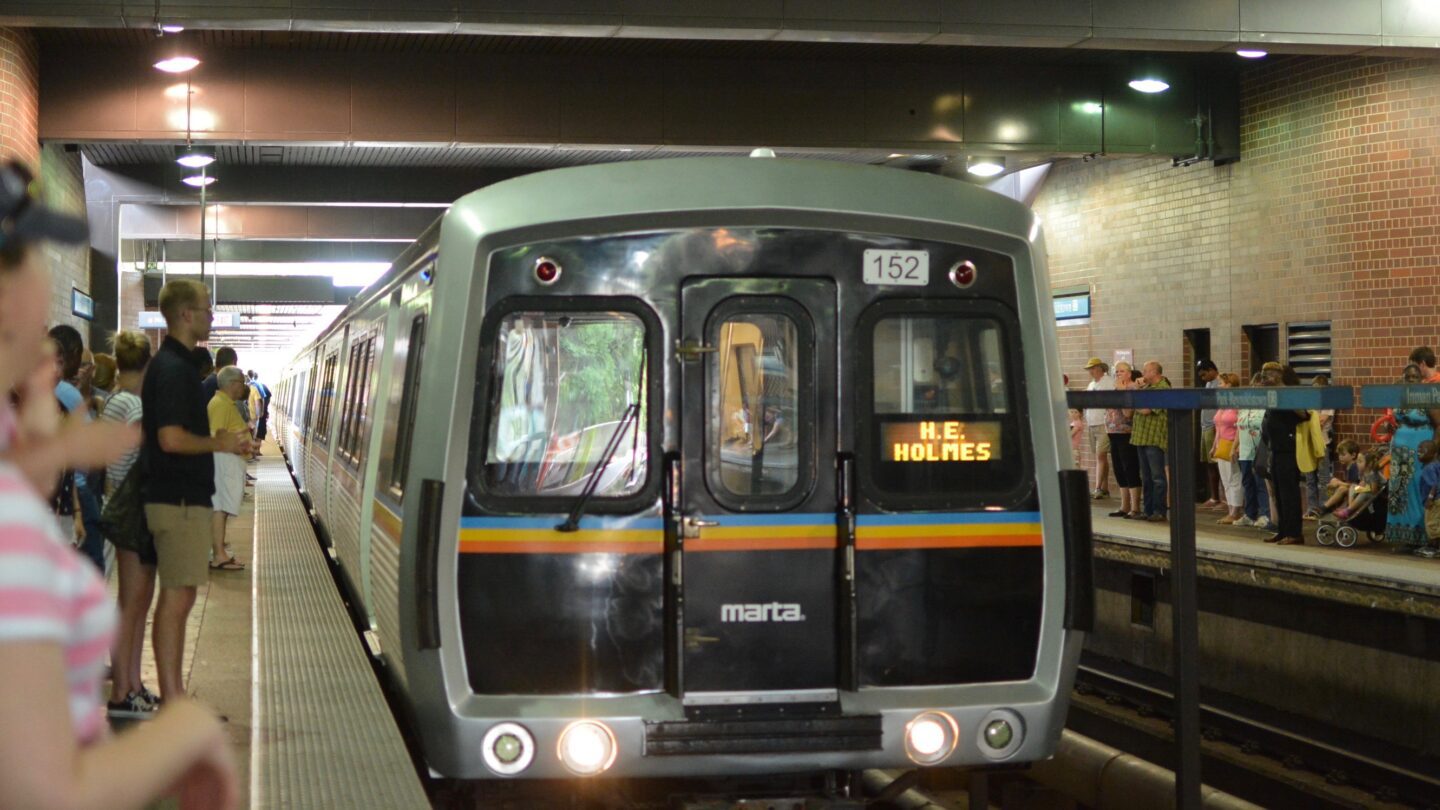MARTA Looks To Modernize Fleet With 250 New Rail Cars

The Metropolitan Atlanta Rapid Transit Authority is now getting ready to replace up to 350 rail cars over the next decade. MARTA Chief Operating Officer Richard Krisak says $700 million in funding has been identified and approved for the 250 cars.
Some of MARTA’s 318 train cars date back to 1979, when the transit system began rail service. Krisak said the lifespan of most train cars is a maximum of 40 years, and newer cars would be safer and easier to maintain.
“Nowadays, a train is basically like a moving computer,” Krisak said. “That ability reduces maintenance, reduces downtime because we can troubleshoot the vehicle by Wi-Fi technology we’re deploying now.”
He said riders are also demanding more Internet connectivity on trains, so he expects the new fleet may include more charging stations, live graphic displays and maps that show where the train is and its next stop.
Krisak said MARTA will seek public input with focus groups including both daily riders and casual MARTA rail passengers to help decide the seating, interior layout and colors of the new trains.
Trains with service to the airport will be expected to accommodate more luggage. Krisak said he’s also looking for more space for wheelchairs and bicycles on the trains as well as easier access and features for mobility-impaired and hearing-impaired riders.
Krisak said rail cars are no longer manufactured by companies in the United States and all 10 major international rail car manufacturers have shown interest in bidding for a contract this year.
“We’re really happy we can provide an improved product for the public,” Krisak said. “It is really the most identifiable item in our system. It really provides the identity. So this is a major procurement for us and we want to make sure we pick a really good firm to partner with and that our customers are involved in the process.“
He expects a request for proposals will be issued in October and due early next year. The first pilot rail car is expected to be on the tracks by 2019. Full-scale production of the 250 cars would begin in 2020. The contract would include an option to purchase an additional 100 train cars.
9(MDAxODM0MDY4MDEyMTY4NDA3MzI3YjkzMw004))








